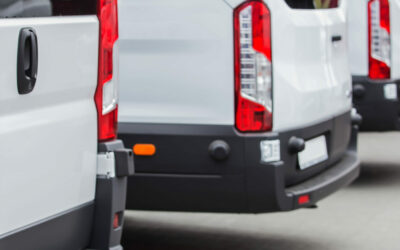Buying and driving a van is different to buying and driving a car. There are a lot of extra rules and regulations to consider.
If you’re buying your first van, this is your essential guide to everything you need to know.
Do I Need a Special Licence to Drive a Van?
Your current driving licence may not cover you to drive a van.
If you passed your test before 1 January 1997, your licence will let you drive a van and trailer combination with a maximum authorised mass (MAM) of up to 8,250 kg. So you could drive a 7.4 tonne van with a 750 kg trailer.
But if you passed your test after 1 January 1997, your licence allows you to drive vehicles with an MAM of up to 3,500 kg.
If you want to drive a van that’s larger than 3,500 kg, or if you want to tow a trailer with your van, you may have to take extra driving tests.
You can check what types of vehicles you can drive on your licence on the government’s website.
Buying Your First Van
What’s the best van for a first-time driver?
It all depends on what you need the van for. The most important thing is that your van meets your practical requirements.
We have a couple of guides to help you get started:
- The Best Vans for Fuel Consumption – These are smaller models that are relatively cheap to run, making them an ideal choice for first-time van drivers. Though if you have significant practical needs, you might need to consider something bigger. Read more.
- The Best Medium-Sized Vans – These larger vans should be suitable for almost any application. We’ve tried to pick models that balance practicality with good fuel economy. Read more.
Taxing Your Van
There are different vehicle excise duty (VED) tax bands for cars. But there’s a flat rate for vans that applies to almost all light commercial vehicles that weigh 3,500 kg or less. The Gov website shows you the current rate of tax, click here to view the current vehicle tax rates.
Beyond this flat rate, there are different van tax bands depending on the size of your van, and the date it was registered.
Here you can read our complete guide to van tax.
Special Road Laws for Van Drivers
In the UK, most vans have different speed limits than cars. The limit varies depending on whether you’re driving in a built up area, on a single carriageway, on a dual carriageway, or on a motorway. It also varies depending on whether or not you’re pulling a trailer. It is your responsibility to know what the speed limits for vans are.
There are also different parking regulations for vans. For most vans, the rules for parking are the same as they are for cars. But if your van has a maximum load weight in excess of 7.5 tonnes, the rules are a lot stricter. There are also a few things to consider if you intend to park your van in a residential area.
Finally, it’s worth remembering that thieves tend to target vans more than they target cars, on the chance that they’ll find expensive goods or equipment. So it’s important to consider how you’re going to secure your van.
You can read our guide to securing your van here.
First Van Insurance
Van insurance works in much the same way as car insurance. But there are many differences between car insurance and van insurance. Familiarise yourself with these differences for when you get your car insurance quotes.
The amount you pay for your van insurance largely depends on how you intend to use your van. If you use your van for business purposes, for example, you may have to add business use to your insurance policy. You can read our guide to business use insurance here.
It will also be impacted by the van insurance group your van falls in to. Just like with car insurance, there are different van insurance groups, and just like with cars, a van’s insurance group largely depends on its size and efficiency.
At Insure 2 Drive, we specialise in providing comprehensive van insurance for less, with optional tool cover and breakdown cover. Head here for more information and to get a free quote.




